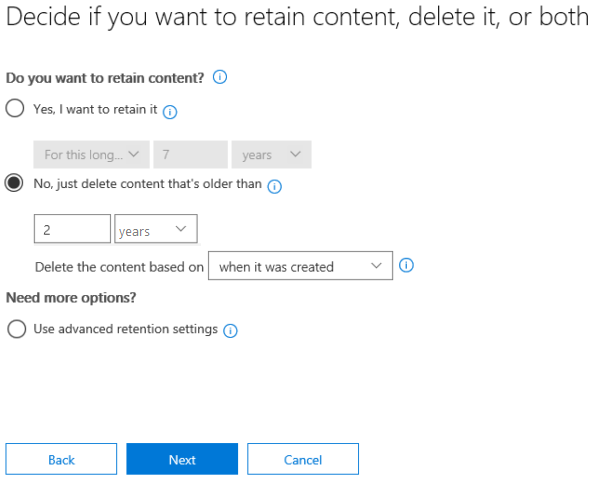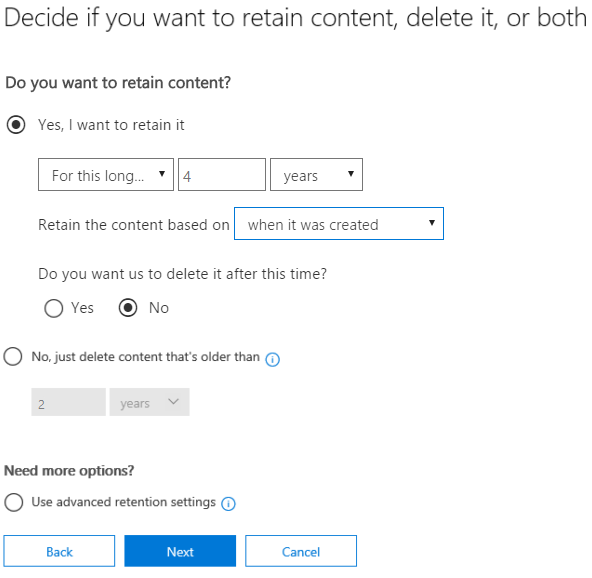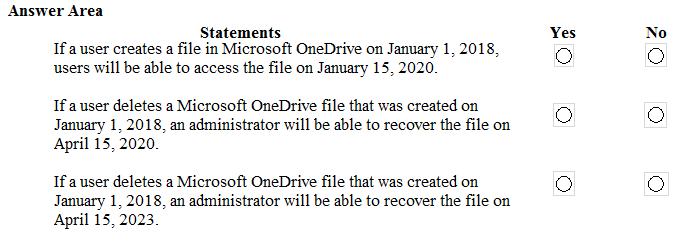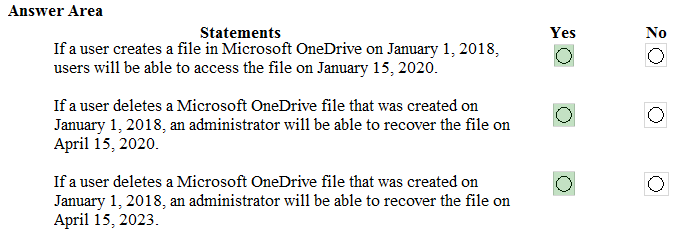

HOTSPOT -
You have retention policies in Microsoft 365 as shown in the following table.
Policy1 is configured as shown in the Policy1 exhibit. (Click the Policy1 tab.)
Policy2 is configured as shown in the Policy2 exhibit. (Click the Policy2 tab.)
For each of the following statements, select Yes if the statement is true. Otherwise, select No.
NOTE: Each correct selection is worth one point.
Hot Area:

Mikeatak
Highly Voted 4 years, 1 month agoDurden871
2 years, 10 months agoPrianishnikov
Highly Voted 4 years, 2 months agoPleebb
3 years, 9 months agoIgorMatic
4 years, 1 month agojcgonzalez1978
4 years, 1 month agogaretht
4 years agojpcapone
4 years agoCeuse
4 years agoRens19991
4 years, 1 month agoDurden871
2 years, 10 months agoAndreasA
2 years, 1 month agoDurden871
Most Recent 2 years, 10 months agoElezh
2 years, 12 months agosgfurgi
2 years, 8 months agobenj42learn
3 years agoAndreasA
2 years, 1 month agoajna_
3 years, 2 months agoJamesM9
3 years, 2 months agosgfurgi
2 years, 8 months agoSee_Es
3 years, 3 months agoLillyLiver
3 years, 3 months agoBouncy
3 years agoDurden871
2 years, 10 months agoTimurKazan
3 years, 5 months ago[Removed]
3 years, 6 months agoRstilekar
3 years, 6 months agoallesglar
3 years, 6 months agoallesglar
3 years, 6 months agoDurden871
2 years, 10 months agoDurden871
2 years, 10 months agoRstilekar
3 years, 6 months agodjlink
3 years, 6 months agoDurden871
2 years, 10 months agoVelda
3 years, 7 months agoDurden871
2 years, 10 months agoDurden871
2 years, 10 months agoBluMoon
3 years, 9 months agoroubchi
3 years, 9 months agoBeitran
3 years, 7 months ago